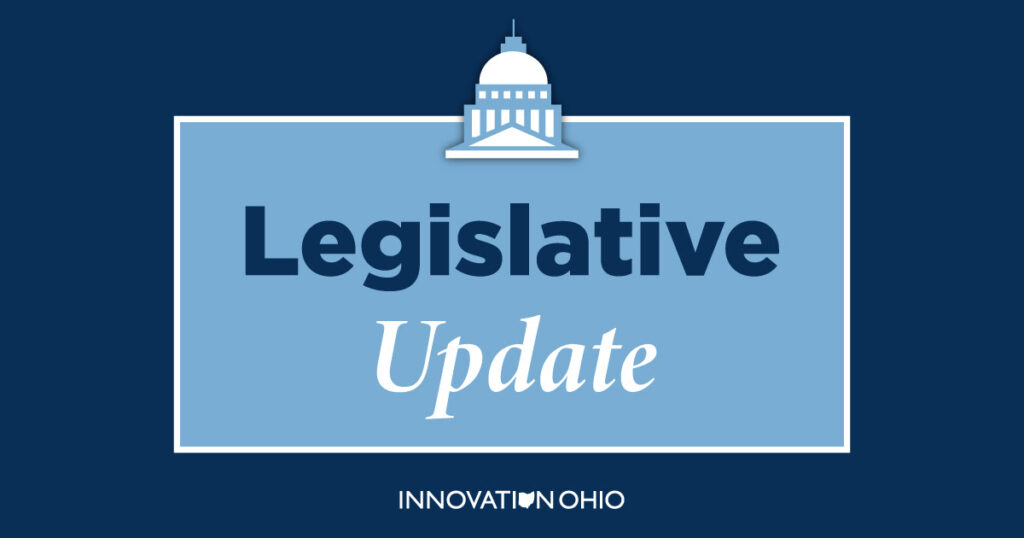
Lame Duck: The perfect time to sign up for our Statehouse Update Newsletter
Today, the Statehouse will see a number of hearings as the 133rd General Assembly kicks off the first week of its always-interesting Lame Duck session. Lame Duck is a colloquial name for the period of time between the general election and the end of the year when a new legislative term starts.
For this two month stretch, term-limited lawmakers and those who lost their bids for reelection are effectively “lame ducks,” on the way out the door. It’s often a time when lawmakers rush to pass priority bills before time runs out at the end of a term, but also is when we tend to see some of the most extreme proposals enacted. Recent examples include restrictions on local minimum wage increases and the 6-week abortion ban.
Lame Duck requires close watch by statehouse activists.
Most of what is on the agenda this week is uncontroversial, as committees work to clear the deck of bills that have been introduced but not yet heard in committee.
Two proposals up for hearings, however, are priorities for legislative leadership and merit careful monitoring: a school funding overhaul in the House Finance Committee and a Senate bill to repeal House Bill 6, the bailout of failing nuclear plants, the 2019 passage of which is the subject of an FBI bribery investigation.
After this week, many anticipate more controversial bills will begin moving. One concern we hear from allies is that conservative lawmakers will enact a full abortion ban in the form of a “trigger law” — one that only takes effect or becomes “triggered” by a ruling of the United States Supreme Court overturning Roe v Wade. In that case, the Ohio law would then take effect.
We will continue to send weekly updates about what’s on the Lame Duck agenda.
New Legislation This Week
The following bills were introduced since our last update. You can keep an eye on all the bills we’re tracking here.
House Bill 777 (Lang, Perales) – Alcohol Sales – to reinstate the authorized hours of operation for liquor permit premises that existed prior to the state of emergency declared in response to COVID-19 and to declare an emergency.
House Bill 783 (A. Miller) – Election Intimidation – to prohibit any person from intimidating, threatening, or coercing a person for the purpose of interfering with that person’s right to vote in an election.
House Bill 784 (Adams, Carruthers) – Law Enforcement – to increase penalties for certain assault, vandalism, and riot offenses, to allow peace officers to bring civil suits against persons participating in a riot, and to prohibit bias-motivated intimidation of first responders.
Senate Bill 374 (Obhof, Peterson) – Alcohol Sales – to reinstate the authorized hours of operation for liquor permit premises that existed prior to the state of emergency declared in response to COVID-19 and to declare an emergency.
Senate Bill 375 (Hoagland, Schafer) – County Fairs – to void the Director of Health’s July 30th order regarding county fairs and to declare an emergency.
Statehouse Meetings & Events
Tuesday, November 10
10:00 am – Senate Energy and Public Utilities – Informal hearing on HB772 (HB6 Repeal) and 2nd hearing (proponent) on SB346 (HB6 Repeal). Senate Finance Hearing Room or watch online.
10:00 am – House Finance – 7th hearing (invited testimony, possible substitute) on HB305 (School Funding). Statehouse Room 313 or watch online.
11:00 am – House State & Local Government – 4th hearing (all testimony, possible amendments & vote) on HB621 (Pandemic Business Closures). Statehouse Room 116 or watch online.
12:30 pm – House Health – 1st hearing (sponsor) on HB316 (firearm “red flag” orders). Statehouse Room 313 or watch online.
12:30 pm – House Criminal Justice – 1st hearing (sponsor) on SB3 (Drug Sentencing). Statehouse Room 121 or watch online.


